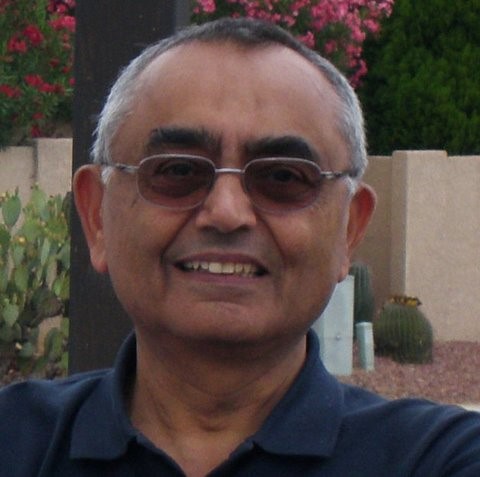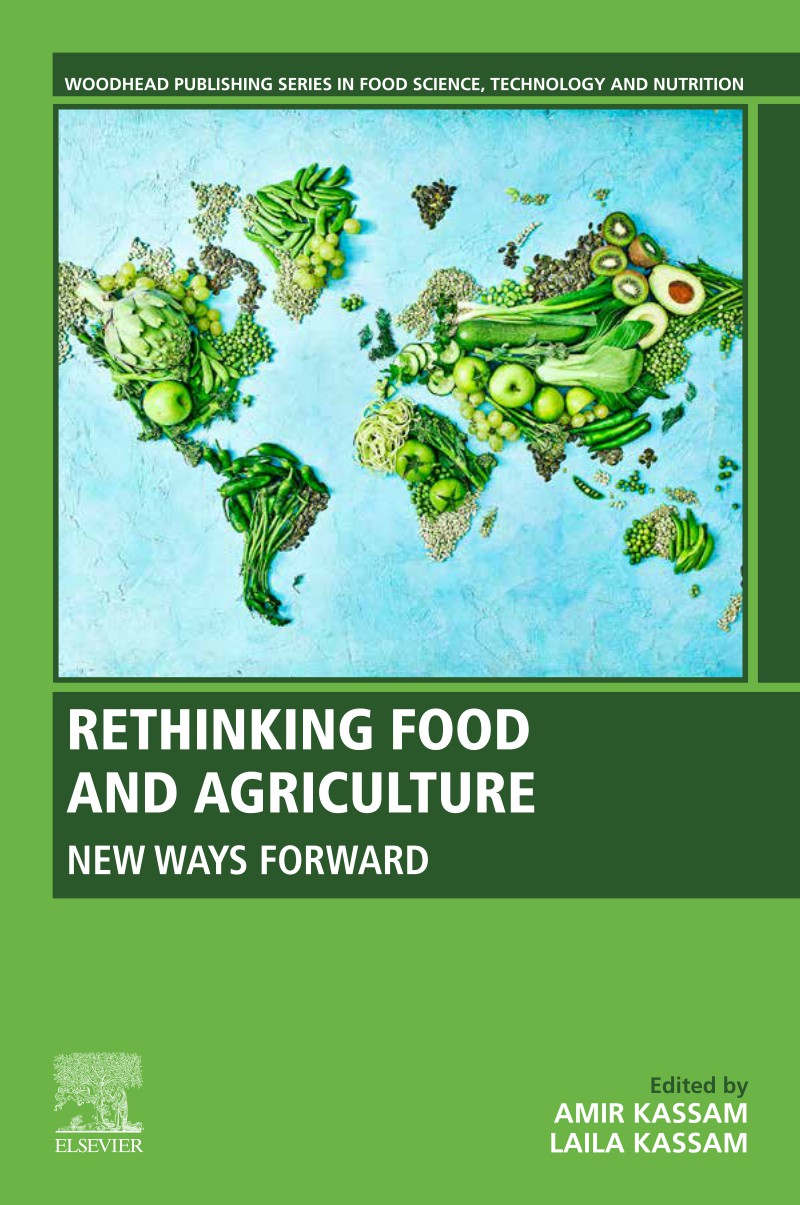Chapter 10
Paradigms of Agriculture
by Amir Kassam and Laila Kassam
Abstract
It is becoming increasingly clear that our food and agriculture system is not working for the vast majority of humans, other animals and ecosystems. We need to shift from the present unsustainable paradigm of industrial agriculture to one that is ecologically sustainable (without which economic, social and environmental sustainability is not possible). This chapter explores what such an ecologically sustainable agricultural paradigm might look like. It starts by discussing the origins and impacts of the current dominant paradigm – the industrial Green Revolution paradigm. It then reviews the origins and characteristics of some of the alternative agricultural paradigms that have developed alongside and in response to the industrial paradigm, namely Organic Agriculture, Agroecology, Regenerative Agriculture and Conservation Agriculture. This is followed by an assessment of the compatibility of these alternative paradigms with ecological sustainability, and suggests ways to optimise their potential for sustainability. The chapter concludes with a discussion of ways forward and future prospects for alternative agriculture paradigms in the context of an ‘inclusively responsible’ food and agriculture system.
Extract
Ways forward for alternative paradigms
While it is clear that the industrial Green Revolution agriculture paradigm is unsustainable by any measure, the alternative paradigms that have developed in response or alongside have both strengths and weaknesses. While they have all turned agroecosystem development back around towards nature to varying degrees, none of them seem to go quite far enough. In our view, no production system or paradigm which depends on intensive mechanical soil disturbance through tillage, does not treat permanent soil much cover (living or dead) as essential, and prefers to rely on livestock integration and animal manure for plant nutrients or regeneration rather than in-situ recycling of nutrients and managing a positive nutrient balance, will be able to fully harness the desired range of supporting, regulatory and provisioning ecosystem services that are necessary for society and nature. Similarly, no paradigm that allows the inclusion of agrochemicals for crop nutrition and protection, even in reduced amounts, or that allows GMOs (central to the Green Revolution 2.0), can be seen as truly sustainable or challenging the conventional paradigm and the corporate control of the food and agriculture system.
In general, alternative paradigms have been driven by farmer-based organizations, civil society interest groups, social movements and organization, and development activists in the fields of research, education and extension. Both IAASTD (2009) and the CFS-HLPE (2019) as well as grassroots movements such as La Via Campesina have promoted Agroecology, including Organic Agriculture, as an alternative paradigm for agriculture. They see Agroecology as representing a transformation of the whole food system, with the ability to end hunger and poverty and effectively mitigate and adapt to climate change. However, promoting paradigms that do not remove the root causes of the degradation and destruction of soil and landscapes, and hence soil- and landscape-mediated ecosystem functions and services, cannot be ecologically sustainable. Integrating a socio-political dimension does not remove the weakness. Given that ecological sustainability can be achieved without domesticated animals, the reliance on tillage, manure and integration of animals to varying degrees in Organic Agriculture, Agroecology and Regeneration Agriculture paradigms, reveals a lack of understanding of how to optimise soil health management without farmed animals and deliver all the on-farm, landscape and ecosystem benefits that agriculture is capable of delivering.
In a neoliberal capitalist economic system, any paradigm which does not work to explicitly challenge the power relations within the food and agriculture system and actively rejecting the corporate influence and control of the food system, is vulnerable to being co-opted by vested interests be they corporate, international organization and philanthropic actors. This co-option has happened to a certain extent with Organic Agriculture (conventional tillage-based organic), Conservation Agriculture and is also starting to happen with Agroecology.
As tempting as it is to propose an entirely new paradigm that synthesises the best of each, we understand the value in embracing the plurality and diversity of these paradigms and the many more that exist within and outside those we have explored, while also recognising that each one has work to do to move towards being both ecologically sustainable as well as including an analysis of the social-political context.
In the context of an inclusively responsible food and agriculture system which includes recognition of the growing trend towards diets which are healthful and sustainable, both for humans and the environment, as well as the need for justice for human and nonhuman animals, in our view the most promising way forward would be for each of these paradigms to:
- be ecologically underpinned by the practical application of the three interlinked Conservation Agriculture principles (no or minimum soil disturbance, soil mulch cover and cropping system diversification)
- be driven biologically to end their reliance on agrochemicals and farmed animals and their manure
- meet the increasing demands for sustainable and nutritious diets and for climate change adaptability and mitigation
- and integrate into the wider movements resisting the corporate food regime and fighting for local autonomy, food sovereignty, and land and seed justice.
Future prospects for alternative agriculture paradigms in the context of inclusively responsible food and agriculture systems
Future prospects for the transformation of the dominant agriculture paradigm are improving continuously. The knowledge, skills and support are becoming increasingly available to farmers through farmers’ own participatory activities as well as national and international programmes. A key driver of this transformation will continue to be the fact that conventional tillage-based agriculture is unable to deliver the multifunctional sustainable agriculture required by society and nature for the future. Conventional tillage agriculture in the form of the Green Revolution paradigm, in particular the industrial version, is a highly degrading land use paradigm. The agriculture of the future must be truly ecological, multifunctional and regenerative.
All four alternative agriculture paradigms reviewed in this chapter represent a work in progress. Those paradigms that continue to use intensive tillage and/or agrochemicals, will not be optimal in terms of ecological sustainability, productivity, or ecosystem services. Much still needs to be discovered and innovated to ensure that our future food and agriculture system is sustainable and productive whether under the Organic, Agroecological, Regenerative or Conservation Agriculture labels. To ensure access to and availability of sustainable, plant-based diets that meet quality of life standards in terms of human health, longevity and ethics and cause minimum harm to the environment. To ensure our relationship to our fellow human and nonhuman animals is inclusive, responsible and just.
At the production system level, in our view organic Conservation Agriculture currently offers the most promising way forward. It combines the possibility of higher output and productivity with ecological sustainability, including the flow of ecosystem services, input use efficiency, and resilience. Small- and large-scale organic Conservation Agriculture systems already exist. More farms will adopt organic systems if technologies to enhance and manage soil health and productivity as well as to protect the crops become readily available and adoptable. Practices such as cover crops, planting green and push-pull IPM, as well as practices that manipulate fungi-bacteria ratios in the soil to supress weeds and mobilize plant nutrients, point to a future where we will have Conservation Agriculture systems that are biological, either totally organic or mostly organic, and regenerative in the sense that they are self-protecting, self-repairing and self-sufficient, requiring minimal external inputs and intervention.
Transforming the current paradigm into one based on the principles of organic Conservation Agriculture is radical shift. The challenges that must be addressed to achieve the transformation are formidable. This is partly because within our neo-liberal capitalist system, change attracts attention only if it good for the market. However, it makes no market sense if the land use system of the future is unsustainable environmentally, economically and socially, and is unable to cope with climate change. As understood so well by those working within the Agroecology paradigm (Holt-Giménez, 2017), we also doubt that under the current economic system we can have a truly sustainable food and agriculture system. Ecologically sustainable and regenerative agriculture alone is not enough to stop and reverse the ecological and environmental degradation of the current paradigm, or to avert or avoid future breakdown of the food and agriculture system.
A capitalist food system that: puts profit and growth before people and the environment: leads to obesity and ill health as well as hunger and malnutrition in equal measure; produces unnecessary food surpluses and wastage, relies on the use and oppression of nonhuman animals; exploits workers; marginalizes and dispossesses smallholders; works against democratic community control of food production and food sovereignty; and is controlled and driven by multi-national corporations facilitated by governments and international institutions, is bound to fail, at least for the vast majority of the world. As such, shifting the agricultural production paradigm is necessary but not sufficient to transform our food system in to one which is inclusively responsible, sustainable and just for all. Wider social, political and economic changes are also needed to transform the corporate capitalist food system that is the ultimate driver of the increasingly destructive and irresponsible practices of industrial agriculture.
About The Authors

Prof Amir Kassam OBE, FRSB, PhD
Amir Kassam is Visiting Professor in the School of Agriculture, Policy and Development, University of Reading, UK, where he teaches Agriculture and Development. He is the Moderator of the FAO-hosted Global Platform for Conservation Agriculture Community of Practice (CA-CoP) and Chairman of the International Conservation Agriculture Advisory Panel for Africa. Born in Tanzania, Amir has a BSc (Hons) in Agriculture and PhD in Agroecology (University of Reading), and MSc in Irrigation (University of California-Davis). Amir is a Fellow of the Royal Society of Biology (UK). He has published widely. In 2005, Amir was awarded an OBE in the Queen’s Honours List for services to tropical agriculture and to rural development. Amir’s former positions include: Deputy Director General (Programme) at the Africa Rice Centre, CGIAR; Interim Executive Secretary of the CGIAR Science Council; and Chairman of the: Aga Khan Foundation (UK); Focus Humanitarian Assistance Foundation; and Tropical Agriculture Association, UK.

Laila Kassam, PhD
Laila Kassam is a development economist and has worked in the international development sector since 2003. She has worked with NGOs, foundations, government ministries and international research and development institutions (including the CGIAR and FAO) focusing on rural development in sub-Saharan Africa and South Asia. Laila is a co-founder and Mission Lead of Animal Think Tank, UK. She currently works on issues related to agroecology, sustainability, food system transformation, and animal, climate and social justice. Laila has a BSc (Hons) in Economics and Politics (University of Bristol), an MSc in Development Management (London School of Economics and Political Science) and a PhD in Development Economics (School of Oriental and African Studies, University of London). Laila’s previous positions include: Programme Associate for Rural Development for the Aga Khan Foundation (Geneva); Research Officer for the DFID funded Coastal Rural Support Programme (Kenya); and Overseas Development Institute (ODI) Fellow at the Ministry of Agriculture (Guyana).
Two Paradigms of Science – and Two Models of Science-Based Agriculture by Colin Tudge
Soil Health and the Revolutionary Potential of Conservation Agriculture by David R. Montgomery



